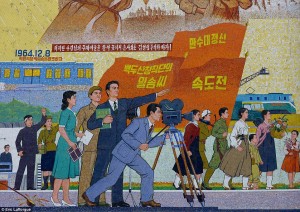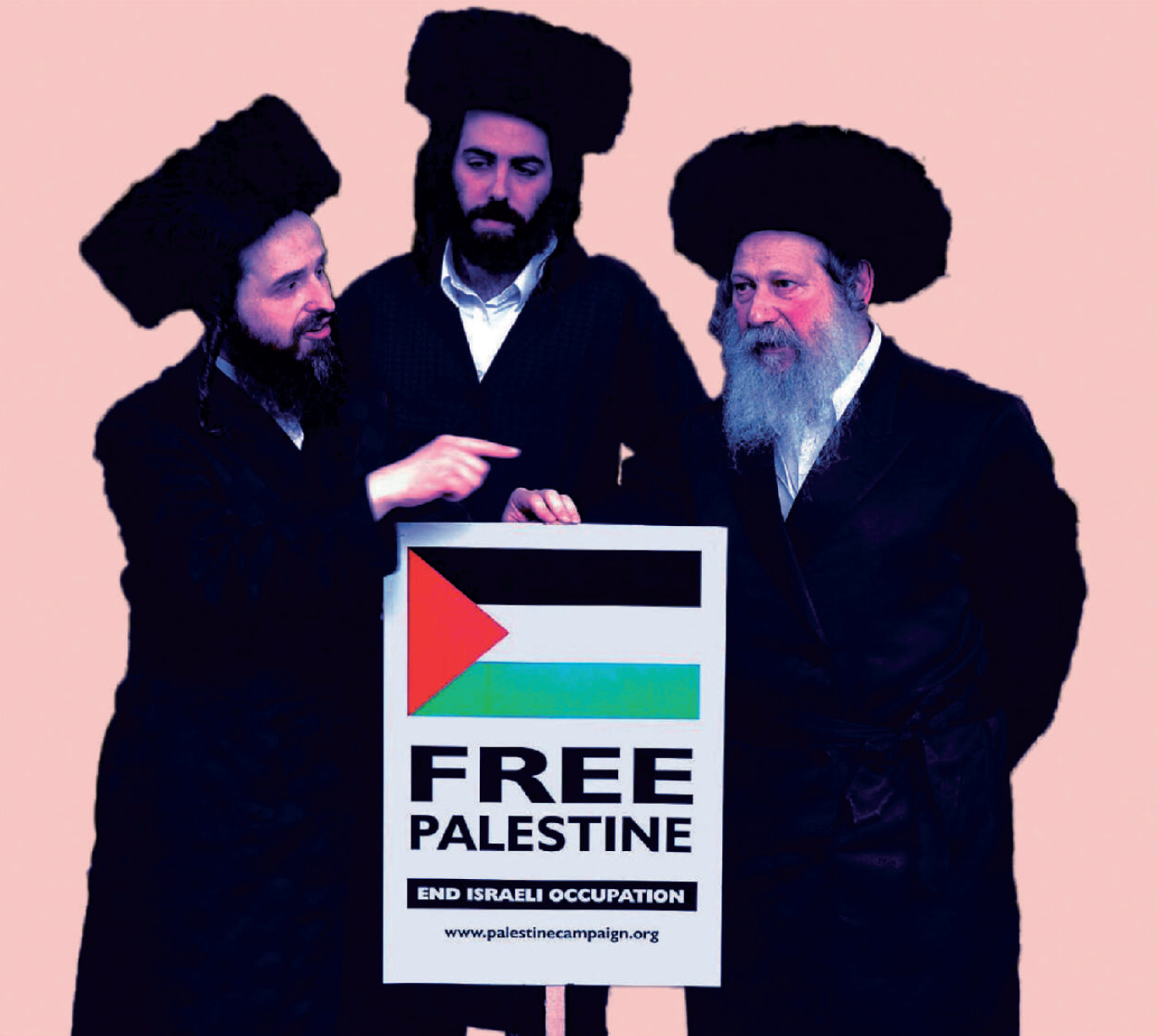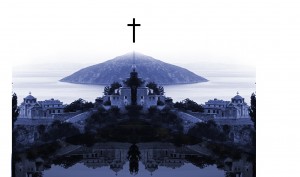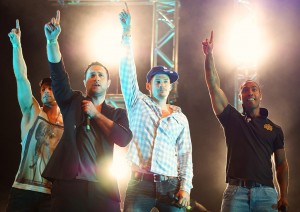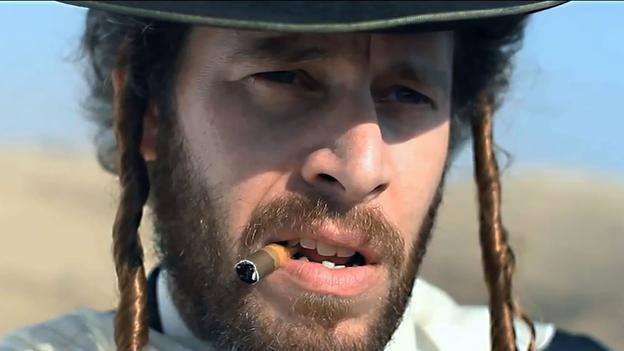
Out of the Knesset and into the Wild West: Making light in Israeli Cinema
by Jacob Wiseman | March 8, 2015
A man stands in a vast, dusty desert set against a sparsely clouded blue sky. He raises his eyes from beneath his hat. “Howdy,” he calls. “Howdy,” responds another man approaching. The director is unafraid of tense eye-level close-ups as the two stand opposite one another in strong stance. The new arrival reaches into his breast pocket. Our hero flexes his hand at his hip.
This scene talks like a western, walks like a western. But there’s a twist. The speech is in Yiddish and both characters are ultra-orthodox Jewish men. Step forward the world’s first Hasidic Western: Der Mentsh, directed by Vania Heymann. Jerusalem-born Heymann is one of Israel’s most exciting young directors having worked on music videos for Bob Dylan and Asaf Avidan and adverts for Pepsi and American Express among others. Heymann’s shot of a cigarette extinguished on a piece of gefilte fish captures something of a film in which the western fizzles into the ultra-orthodox world. In this fantasy arena where there is as much gun-slinging as there is beard-stroking, the bounty hunter role is played by an assassin, employed by abandoned women whose husbands have refused to grant them a gett (Jewish divorce), leaving them unable to remarry. “You are my last option,” Maydelleh, the hitman’s employer, tells him, where in reality the matter would be settled in a Jewish court of law. Heymann creates a world that takes a deftly comic step away from rabbinic reality and towards the lawless Wild West.
The film, currently in production, represents an emerging trend in Israeli cinema. Traditionally, the most internationally acclaimed Israeli films have focussed on the political situation. The 2008 Oscar-nominated animated film Waltz with Bashir is a notable example, telling the story of a traumatised ex-military film director looking to recover a lost memory of the 1982 Lebanon War. Der Mentsh is part of a new culture surfacing in Israeli cinema, one that is distant from conflict, and one that is capable of producing a Hasidic Western. What’s more, the movement is gaining traction. It is not an underground bubbling of indie films, but stepping onto the world stage. In 2013, Quentin Tarantino dubbed the Israeli thriller-cum-horror Big Bad Wolves film of the year. Perhaps this came as a result of the Tarantino-esque torture scenes that paid homage to Reservoir Dogs, but its distribution in more than 15 countries demonstrates a broader recognition. The film tells of a series of murders that bring together a bereaved and vengeful father with a police investigator, leading to the capture and torture of the suspected killer. The film is drenched in absurdist black comedy: “Smells like barbecue,” says one torturer to another as a blowtorch is applied to the skin of their subject. The absurdist humour in Big Bad Wolves speaks of the futility of vengeance. In Israel, such a notion is deeply political. It implies both accusation and judgment, but it does so at a distance. Israelis are familiar with explicit conflict; their young filmmakers comment on conflict, while allowing their audiences space from it cinematically.
According to Pablo Utin, Chair of the Israeli Film Critics’ Association, the new generation of filmmakers is looking to engage with Israeli society in a way that is separate to the conflict. “First of all, they are making works of cinema, works of art. But they still have a level of engagement with the conflict. They are trying to reconnect with society through cinema that can be enjoyed in a different way than political or war films.” He tells me that the reason for political dominance in Israeli cinema is twofold: first, Israeli media takes a more active interest in films that deal with the conflict directly, often spawning waves of media comment; second, the expectations of international audiences. Israel’s political situation so often dominates the international press, which foreign audiences want to see reflected in its films. “On the international circuit, when you go to see an exotic film about another place, you are always looking for it to tell you something about that place. But what you are really looking for is what you already know. No one wants to see a romantic comedy from Korea. They want to see something that is considered more ‘Korean’. The same is true of Israeli cinema: people want to see the army, the conflict, the Holocaust or the religion. For the international viewer, this is what Israel is about. And so we get stuck with the same kind of films.”
Meanwhile the work of Israeli filmmakers has often become embroiled in political controversy internationally. In 2014, British director Ken Loach called for a cultural boycott of Israel, while the Tricycle Theatre briefly refused to host the Jewish Film Festival as a result of its funding by the Israeli Embassy. Politics dominates cultural export. Utin explains that Israeli filmmakers have responded by looking towards Israeli society: “They’re trying to create art that can be seen as good cinema, and not defined by conflict. However, this new generation of filmmakers are still highly politicised and want to talk more about what this conflict is doing inside Israeli society. These are individuals commenting on the vulgarity of Israeli society and the need for more art and culture. Even if you are not seeing a violent film, you might be looking at a violent society. In Big Bad Wolves the film seems like a thriller, but the directors are always commenting, always inserting their self-reflective voice that discusses where society is headed. This type of cinema expands Israeli society: it tells you it is about more than the kibbutz, the Holocaust, the ultra-orthodox and the conflict.”
The move away from political realism by young Israeli filmmakers, viewed in this context, looks to make light for itself. It seeks to create an Israeli cinematic identity that does not lie in the shadow of its politics, but stands in its own light as film. These filmmakers defy both audience expectation and their country’s traditional cinematic output, creating an artistic space that is distant from, yet engaged with, the political arena. This emerging trend is fuelled by a need to forge a cultural identity. A by-product of this approach is Israel’s flourishing feminist cinema. While the 2015 Oscars betray a male-dominated landscape, with only men in contention for Best Director, women directed five out of the seven films nominated for Best Full-Length Feature at this year’s Jerusalem Film Festival. “Even the two films that are not directed by women are very feminist,” jokes Noa Regev, the director of the Jerusalem Film Festival and CEO of the Jerusalem Cinematheque and Israeli Film Archive. One of those two films is The Kindergarten Teacher, in which a young boy’s teacher discovers his poetic talent. The film becomes the story of her efforts to protect his poetic spirit against militarised surroundings, and her struggles in a society dominated by conflict parallel those in a society dominated by men. The film has received international distribution, and Regev believes its feminism is the key to its success: “Feminist films are offering an alternative to the chauvinist discourse that war presents, although I think war and chauvinism have a lot to do with one another. The Kindergarten Teacher is, in its own way, a reaction to the political situation. While it does not address the conflict directly, it offers an alternative to the mainstream socio-political tapestry.”
This new Israeli cinema, in its struggle for identity beyond conflict, is finding a common ground with feminism. They share a search to give voice to those marginalised by tradition. “A lot of hope comes from what I see in Israeli cinema,” Regev tells me. “I think it is very optimistic for the world.” Israeli cinema that has been for so long in the shadow of conflict is stepping out into its own light. It is creating a space where films and filmmakers take centre stage. The films might be dark, but perhaps in the filmmaking there is cause for optimism.
